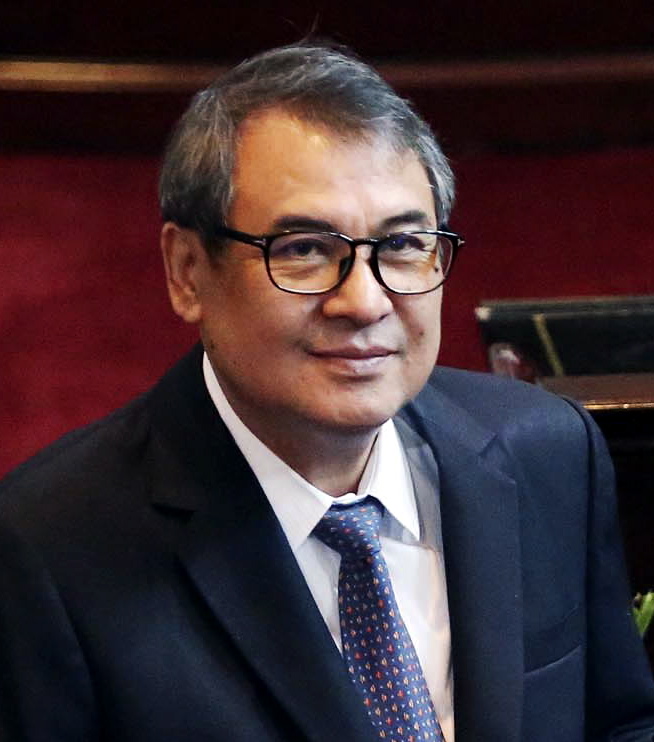
Chief Justice Alexander Gesmundo. INQUIRER FILE PHOTO/ MARIANNE BERMUDEZ
MANILA, Philippines — The Supreme Court on Friday said it was starting the revision of court rules, particularly on serving search and arrest warrants that had recently led to bloody killings of suspects, and was reviewing numerous reports ahead of taking action against the violent assaults on lawyers and judges.
At his first press conference since taking the helm of the judiciary on April 5, Chief Justice Alexander Gesmundo said the revision or amendment of the Rules on Criminal Procedure “specifically address the issues” concerning the issuance of arrest and search warrants.
“We’re working on it,” he said. Many lawyers have lamented that many of these court orders had become “death warrants” for members of progressive groups that had been red-tagged by the government in its counterinsurgency campaign.
Proposed revisions
“The court is very clear … that with respect to [the] issuance of arrest warrant or search warrant, our judges know the responsibility that they have to comply with [under] the Constitution and the Rules of Court,” Gesmundo said during the online media briefing.
Gesmundo said Associate Justice Marvic Leonen, who joined the press conference along with 11 other members of the court, had already submitted his proposed revisions on the guidelines.
Gesmundo said the justices would immediately begin discussions on the proposed changes when they resume their weekly en banc (full court) sessions on June 15.
“Our colleagues have submitted their respective inputs. Hopefully, and I’m optimistic, that maybe after two or three deliberations, we will come up with the final version,” he said.
“By July perhaps we will have the final version and we’ll approve it for implementation immediately,” he added.
The court would also provide guidelines on the requirement for the use of body-worn cameras for law enforcers who serve the warrants, Gesmundo said. “It’s in the works,” he said.
Activists and human rights defenders have accused police and soldiers of planting evidence as they serve arrest and search warrants at the offices and residences of members and leaders of Left-leaning groups.
In many cases, these operations result in supposed gunfights between law enforcers and the subjects of the court orders, they said.
They also observed that most, if not all, warrants used by police and soldiers were issued by lower court judges from areas outside of the city or municipality where the operations were conducted.
‘Bloody Sunday’
In one recent case, nine activists were slain during simultaneous operations conducted by the police and the military in the Calabarzon (Cavite, Laguna, Batangas, Rizal and Quezon) region on March 7 in what has become infamously known as “Bloody Sunday.”
The search warrants used by the law enforcers on that day were issued by two Manila regional trial court judges.
In an interview by the Judicial and Bar Council prior to his appointment as chief justice, Gesmundo said a judge should not arbitrarily grant search warrants based merely on claims by state agents without personally determining probable cause after conducting a “searching inquiry” as directed by the Constitution.
“He cannot solely rely on the affidavits of the complainants and the witnesses they produced because that would be in violation of the Constitution, as well as the Rules on Criminal Procedure,” he said.
The many attacks, mostly fatal, against lawyers and judges since after President Duterte took office in 2016 also alarmed the high tribunal and Gesmundo said the court was determined to stop them.
The National Union of Peoples’ Lawyers (NUPL) earlier said that at least 54 lawyers had been killed under the current administration.
Most of the victims, it said, handled cases involving human rights, political prisoners, activists and union leaders.
Strong condemnation
On March 23, the high court strongly condemned the attacks and asked all lower courts, law enforcement agencies, lawyers, judges and other groups to submit “vetted information” regarding the threats and assaults against members of the bar.
Gesmundo said the court had formed a committee to examine these reports and would be looking into them.
“We have received voluminous data, but we need to scrutinize them for us to understand [the information]. And only then can we make [the appropriate] action,” he told reporters.
“We will act on the results of those reports and recommendations within the jurisdiction of the judiciary. If outside of the judiciary’s jurisdiction, then we would endorse the results to the appropriate entity or institution of government for them to address these issues,” he said.
“But I assure you, the Supreme Court is acting on this,” the chief justice said.
Source of friction
A source of friction between one of Gesmundo’s predecessors, Chief Justice Maria Lourdes Sereno, and the executive branch was the President’s public allegations without presenting proof that there were judges involved in the illegal drug trade.The President early in his term released a list of these so-called narco-judges.
That triggered a public feud between Mr. Duterte and Sereno, who told judges included in the President’s list not to yield to authorities unless there was a warrant of arrest for them.
This angered the President, who at one point, said, addressing Sereno: “You’re interfering with my job … Don’t create a crisis because I will order everybody in the executive department not to honor you.”
Less than two years later, the country’s first female chief justice was unceremoniously removed by her colleagues through a quo warranto petition initiated by Mr. Duterte’s close allies and supporters. INQ